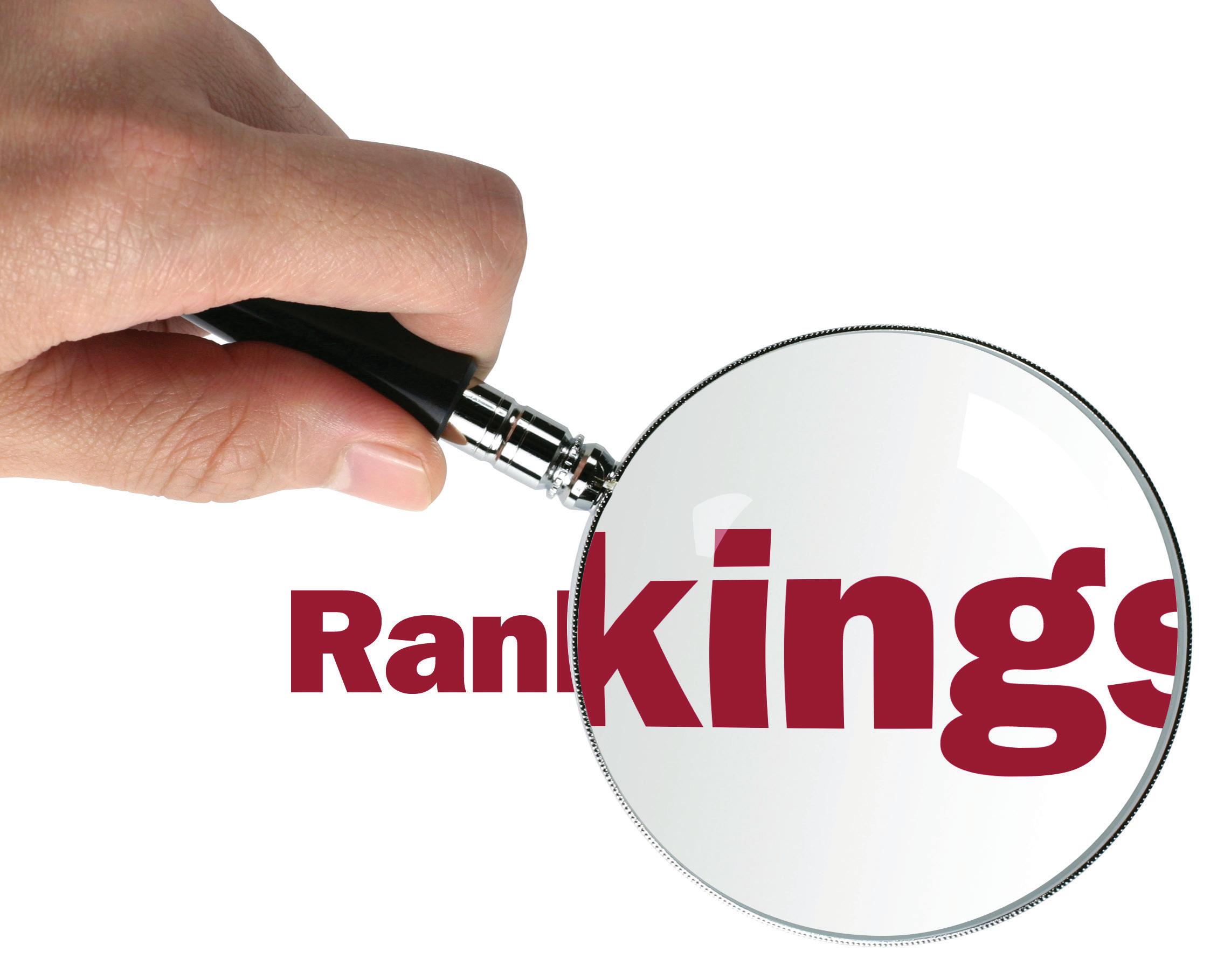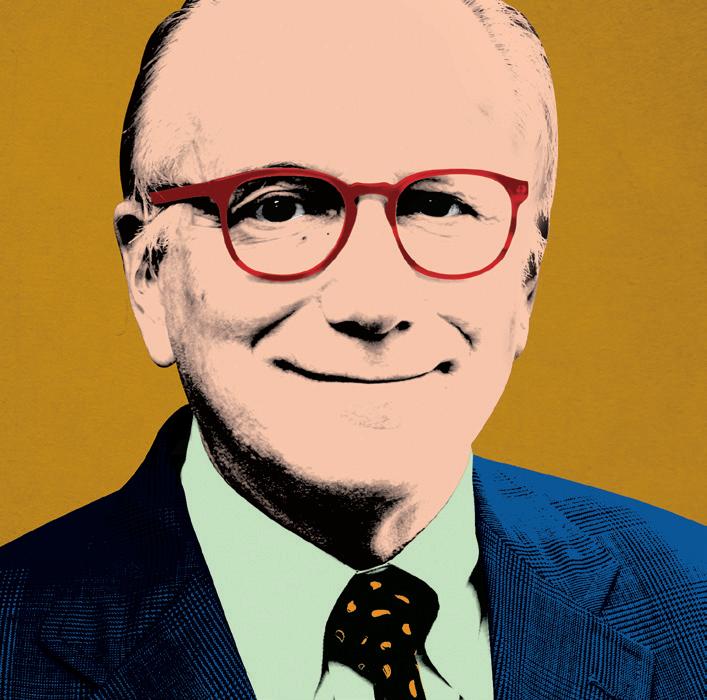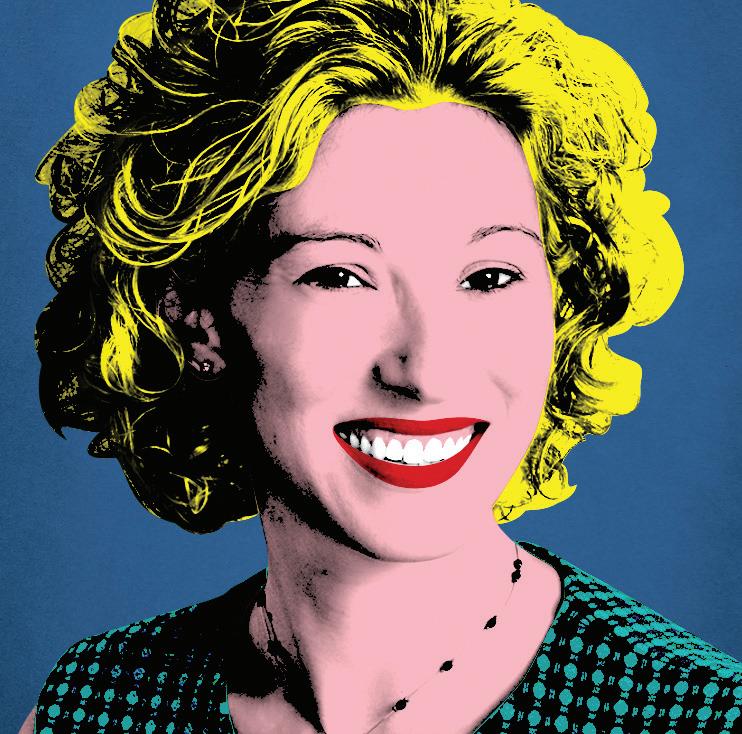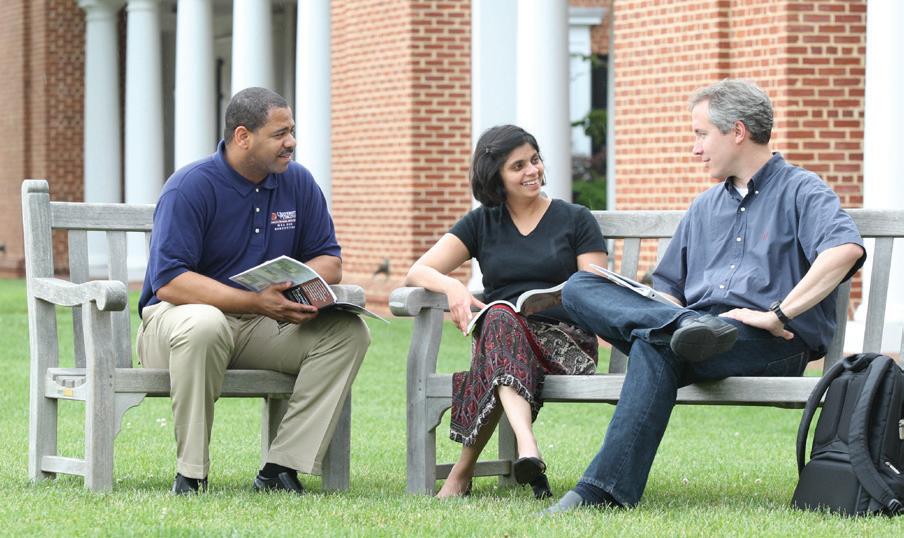
16 minute read
Sound Bites
‘‘Failure is fatal only if it involves a violation of values. If it’s learning, judgment, then that’s an investment, and you will get a return on that investment. sound bites
— Wes Bush, chairman, CEO and president of Northrop Grumman Corporation, remarked that downturns bring upturns in defense technology during a discussion of leadership and innovation with Dean Bob Bruner at the Darden School.
“You used to be able to see your competitors coming. Business risk now comes from unforeseen places. Globalization and the Internet have reduced the barriers to competition.” — Joseph Ripp, CEO of Cannondale
Investments Inc. and former chief financial officer of Time Warner and
AOL, spoke on “The Role of the CFO” as part of Darden’s Leadership
Speaker Series in October.
Use any QR Code Reader application on your mobile device to scan the following QR codes (short for Quick Response).

“The census showed that the Hispanic population reached 50 million this year. … This is not a trend, a little hiccup. This is going to affect marketing for as long as any of us are in the industry. It will shape every segment of the market.” — Elizabeth Ellers, executive vice president of corporate research at Univision Communications Inc., spoke at the Hispanic Marketing Summit, presented by the Hispanic American Network at Darden in association with the Darden Marketing Club, in October.
“Las Vegas, I contend, is the epicenter of the experience economy. The fact that Las Vegas is probably hurting most of any U.S. city in the current economic downturn is evidence of the fact that it will also boom the most when things are good. We need more trips to Las Vegas, we need more trade centers, we need more business being transacted through travel to Las Vegas and other B2B cities.” — James H. Gilmore, Batten Fellow, Darden adjunct lecturer and co-founder of Strategic Horizons LLP, kicked off his talk on the “Experience Economy in the Age of Digital Marketing” with a mini presentation called “Look Ma, No Payphone, or How I Learned to Loathe the iPad.” Gilmore spoke in October at Darden as part of the Leadership Speaker Series, in conjunction with the 10th Annual Darden Marketing Forum. “We’re a relationship firm. Our caution to our consultants is: We want you to be really close with your clients, but you can’t go native.” — S. Bradley Kitchens, president and CEO of ScottMadden Inc., discussed “The Art of Consulting” in September as part of Darden’s Leadership Speaker Series. His presentation was co-sponsored by Darden’s Consulting Club and Energy Club.

A CLOSER LOOK AT MBA

by Melissa V. P. Rossow
Deciphering business school rankings can be a tricky business. Many prospective students look at them, yet no two ranking publications ever seem to come to the same conclusion or use the same methodology.
“I pay attention to Darden’s rankings because people I care about pay attention to them,” says Robert F. Bruner, dean of the Darden School of Business. “But I spend much more of my time thinking about the deep fundamentals of Darden’s progress and trust that the good work we’re doing will eventually be recognized in things such as rankings.”
Darden appears in the top 20 of U.S. schools in the five major ranking publications: Bloomberg Businessweek, The Economist, Financial Times, Forbes and U.S. News & World Report. [See sidebar.]
“We will not let the rankings dictate who we are,” says Bruner. “Fortunately, the rankings treat Darden relatively well.” For instance, in October 2011, The Economist ranked Darden’s MBA program No. 4 in the world, No. 3 in North America and the No. 1 “education experience” in the world.
Darden tends to do extremely well in surveys that measure student and alumni experience, like The Economist and Bloomberg Businessweek, says Sara Neher, assistant dean of MBA admissions, because those publications value what Darden values.
Each publication measures different factors, none of the publications have the same No. 1 school and their lists of top 20 institutions all look different.
Neher manages the rankings process with the help of her two associate directors, a data specialist and numerous people across the Darden Grounds. The process entails gathering the data required by each publication, which often involves answering questionnaires or sending surveys to recent graduates and alumni. No two surveys are alike — some are more qualitative and some are more quantitative.
Despite skepticism over methodology differences, there are some benefits to the rankings. “It would be a lot more work to do that benchmarking by ourselves,”
says Neher, “and here we get five amazing publications doing benchmarking for us.”
What’s important is for prospective students and alumni to dig into each ranking and understand what they actually measure. The rankings can positively impact graduates’ careers.
Alumni can do several things to influence the polls: complete rankings surveys when they receive them, hire new graduates and alumni who are three to five years out, post jobs with the Armstrong Center for Alumni Career Services, give back financially to the school and create networking opportunities.
Behind most of the rankings are editors and journalists who simply want to provide useful information to their readers. “Most of them are trying to educate the public,” says Neher. “They really do want to provide students with an opportunity to learn about a variety of programs. That’s their goal, but it’s only one part of what a student should do when considering a school.”
Dean Bruner believes strongly that students need to investigate their options firsthand when applying to business school.
Neher concurs. “The last thing schools want is for someone to choose us based on a ranking and not on the experience they are going to have or the program they are going to attend.”
Prospective students should visit the campus, ask questions of current students and alumni and sit in on a class to make sure the school has the program that will help them obtain their goals.
“There are over 13,000 institutions in the world that award degrees in business of some kind,” says Bruner. “Rankings are one way to narrow your focus in the selection of schools. They are a way to start a search — but they are a terrible way to end a search. As with any other major purchase (such as a car or house, for instance), you should talk with anyone who has firsthand knowledge of the school and its environment. Get on the ground; kick the tires; look at it from all angles; gauge the culture.”
MBA SPECIALTY RANKINGS
Darden’s Rank
1Student Satisfaction (Bloomberg Businessweek 2010)
1General Management (Financial Times 2011)
1Best Faculty (The Princeton Review 2010)
1Education Experience (The Economist 2011)
2Best Facilities (The Princeton Review 2011)
3Corporate Social Responsibility (Financial Times 2010)
3Entrepreneurship (The Princeton Review for Entrepreneur magazine 2011)
The MBA for Executives program will be eligible for rankings in 2013.
MBA RANKINGS
Darden’s Rank Publication The information the publication collects The criteria the publication evaluates 3
The Economist
(North American Ranking) Surveys students and alumni; collects data from the business school, including the percentage of international students on campus Career services, job placement, faculty and student quality and diversity, recruiter diversity, salary changes from before to after degree
9
Forbes
Surveys alumni about salaries Return on investment using total salaries of alumni who are five years out minus salaries lost while in school and cost of education
11 Bloomberg Businessweek
Surveys recent grads and surveys recruiters about perceived quality of the institution Rates qualitative student experiences as well as recruiters’ 20 top school selections
13 U.S. News & World Report
Surveys deans and B-school administrators and recruiters; collects data from institutions on average GMAT scores, average GPA, acceptance rates, starting salaries and employment rates Ratings from deans, administrators and recruiters; quantitative analysis of data
19 Financial Times (U.S. Ranking)
Surveys alumni three years out; collects data from the school on employment of recent graduates, diversity on campus and faculty research publishing Salary increases for alumni since pre-MBA; student employment stats three months out; faculty and student diversity on campus and number of international opportunities; how much the faculty publishes
The world continues to cough and sputter as it suffers from economic malaise. Among its symptoms: sluggish growth, erratic stock prices, entrenched unemployment, political upheaval, skeptical consumers and skyrocketing fuel costs. Nine members of Darden’s all-star faculty, one representing each of Darden’s academic areas, share ideas for how the world might pull out of the slump.
Elena Loutskina
FINANCE
Elena Loutskina’s research focuses on the role of venture capitalists and corporate venture capitalists in value creation for entrepreneurial firms.

In the short run, U.S. economic growth depends on the ability of the European governments to act on Greece insolvency and then resolve the debacle of solvent but illiquid Italy and Spain. The uncertainty about the European developed markets and EU banking sector affects U.S. companies’ willingness to expand production and payroll. Recent dramatic responses of the U.S. stock market to the news from Europe illustrate this dependence rather well. Internally, U.S. politicians add to uncertainty via unnecessary political brinksmanship and a political agenda that appeals to Main Street but that is economically irrational or even damaging. The raising of the debt ceiling debacle is a good example; the potential tariff war with China is another. Uncertainty, be that economic or political, forces companies to hoard cash and shy away from expansion. In the long run, if I am allowed to dream a bit, I would love to see an overhaul and simplification of the tax code and reform of entitlements. Lowering health care costs could also balance budgets and expand employment.
R. Edward Freeman
STRATEGY, ETHICS & ENTREPRENEURSHIP Ed Freeman is an expert in the fields of stakeholder management, business strategy and business ethics and has written extensively on these subjects.

In my view, there is only one way to “fix” the economy. We must focus on value creation, and not just for shareholders. Every sustainable business creates value for customers, suppliers, employees and communities, as well as financiers. In the past several decades, we have regarded “financiers” as more important than other stakeholders. In reality, the interests of these groups go together. We have to figure out how to make customers better off, employees better off, etc., and that will make financiers better off. Policymakers need to think about what they can do to allow and encourage value creation for stakeholders, rather than put barriers in the way. Policy-makers also must double down on attempts to encourage new business formation and entrepreneurship. We have to create and innovate our way out of this mess. More of the same stale old solutions will leave an impoverished world for our children.
Erika James
LEADERSHIP & ORGANIZATIONAL BEHAVIOR
Erika James focuses on two critical issues facing today’s corporate and political environments: crisis leadership and workplace diversity.

As a professor of leadership, I, along with my colleagues, view the economy through a lens connected to understanding people and their motivations. We teach that leadership is about broadening one’s perspective rather than staying entrenched in a single point of view. Just as we recognize the importance of multiple functional areas in effectively running a business, our government leaders must recognize the value that all of their constituents bring to the effort of rebuilding our economy. Great ideas come in a variety of packages, from a variety of gift bearers (rich, poor, black, white, business leaders, senate leaders), espousing a variety of values (conservative, liberal, Christian, non-Christian). Each one must be opened and carefully considered rather than summarily dismissed because someone takes issue with the person or group bearing the potential gift. To fix the economy, we must put our egos aside and consider the possibility that someone else, someone different, just might have a good idea.
James R. Rubin
MANAGEMENT COMMUNICATION
James R. Rubin teaches management and corporate communication and writes about corporate brand and crisis communication.
Elliott N. Weiss
TECHNOLOGY & OPERATIONS
Elliott N. Weiss specializes in production scheduling, workflow management, logistics, lean conversions and total productive maintenance.

From the perspective of corporate communication, the most important issue affecting the economy is the need to restore trust in business. Anyone checking measurements over the last 10 years at places like the World Economic Forum can find “trust in business at an all-time low.” Trust in business and other large organizations has been declining since the 1970s, with precipitous drops during scandals or crises. Last year, the answer to “Do you trust business to do the right thing?” was at 28 percent. At the same time, public expectations for business have risen, as seen in the growth of corporate social responsibility. Arthur Page, long-time chief communication officer of AT&T, said that “business operates with the permission of the public.” We have seen what happens when investors lose confidence in capital markets. Almost every industry faces difficult issues. Will they have the public trust to address them? V alue in the marketplace is relative. Customers, shareholders and employees seek products and services that are less costly, of higher quality, delivered faster and are more customized or meet new needs. This is why firms exist: to transform inputs (labor, capital, materials and information) into outputs (products and services) of greater value. To get the economy on the right track, firms need to better execute the tasks directly related to creating that value as defined by the customer: (1) an effective product/service innovation process that identifies both stated and unstated customer needs and (2) improved processes to create and deliver these needs. The only way to achieve that level of customer value is through well-informed investments in product and service innovation, process improvement and the skills to transform the ideas into actions.

Mary Margaret Frank
ACCOUNTING
Mary Margaret Frank teaches accounting courses and researches the effects of mandated disclosure on the strategy of corporate management, investors and entrepreneurs.

Fix the economy by reducing regulatory uncertainty. How? Find a sustainable compromise to reduce the national debt and stop legislating to eliminate life’s risks.
It is time for grown-ups to make hard choices, if not for ourselves, then for our children. Dig deep and stop waiting for others to do the heavy lifting. Until we find a sustainable solution to our long-term debt crisis, the uncertainty of our response will limit investment in our future.
Bad outcomes from greed, hubris, laziness and naiveté shook the world. Regulators responded with numerous rules to prevent future occurrences, but at what cost? Have you seen the size of our tax code lately? New regulations generate uncertainty about their interpretation and enforcement, which leads to a continuous cycle of rule-making. Regulations cannot substitute for good judgment.
Yael Grushka-Cockayne
QUANTITATIVE ANALYSIS Yael Grushka-Cockayne’s research and teaching activities focus on project and project portfolio management, strategic and behavioral decision making and new product development.

The economy is shaped, in part, by the many decisions organizations and individuals make every day. Thus, improving the quality of such decisions would be a necessity in reviving and sustaining the economy. How might this be done? Once one recognizes that decisions can only be as robust as the data they rely on, it is clear that we must focus on the quality of the underlying data. Such input into our decision models often requires a prediction of the future of, for example, demand levels, company profits or forecasted interest rates. And thus, good forecasts are fundamental for good decisions. Good forecasting involves acknowledging the inherent uncertainties in a situation and that things can go very wrong very quickly. A well-designed forecast will help managers internalize the breadth of the uncertainty so that they can make better plans, develop contingency plans and take advantage of unexpected opportunities. T he importance of consistent quality is even higher in a recession. Consumers are less willing to take a risk with new products and brands because, with less discretionary income, they cannot afford to experiment.
Firms need to recognize that consumers research online before they purchase. This is even more prevalent when consumers have less discretionary income and are risk averse. So, having an online presence with consumer forums and reviews is paramount.
The middle class has almost vanished in this economy. Providing a two-part product assortment — one aimed at lower-income consumers, with smaller sizes, and another focused on high-income consumers, with premium services — would be a good strategy.
Consumers are occasionally also splurging on hedonic products as a way of escaping from their daily routine. So, products such as beauty items and desserts will perform better. Saving the economy somehow connotes a doomed economy. While a quick recovery isn’t manifest, I am optimistic about a medium-term recovery. In my opinion, that could start with a careful stimulus and austerity plan all in one. On austerity, reforming the tax system to patch tax avoidance loopholes and increase the tax base could be coupled with introducing a Value Added Tax, painful as it will be on consumers. A carbon tax should be seriously considered. There is plenty of slack in the economy. Forward-looking investments need to happen in infrastructure and sustainability, alongside job creation. Investors and consumers need to be optimistic and spend, taking advantage of easy money to spend (even on lumpy durables). On the housing front, due diligence should be exercised in restructuring mortgages to preempt some imminent foreclosures. Facilitating foreign direct investment by friendlier foreign policy could allow the United States to leverage the Euro Zone woes.
Raj Venkatesan
MARKETING
Raj Venkatesan teaches marketing courses and researches customer-centric marketing strategies that provide measurable financial results.

Mir M. Salim
GLOBAL ECONOMIES & MARKETS
Mir M. Salim studies the empirical economics of development, with a focus on microfinance, the strategic interactions of for-profits and nonprofits, and the objectives of nonprofits.









